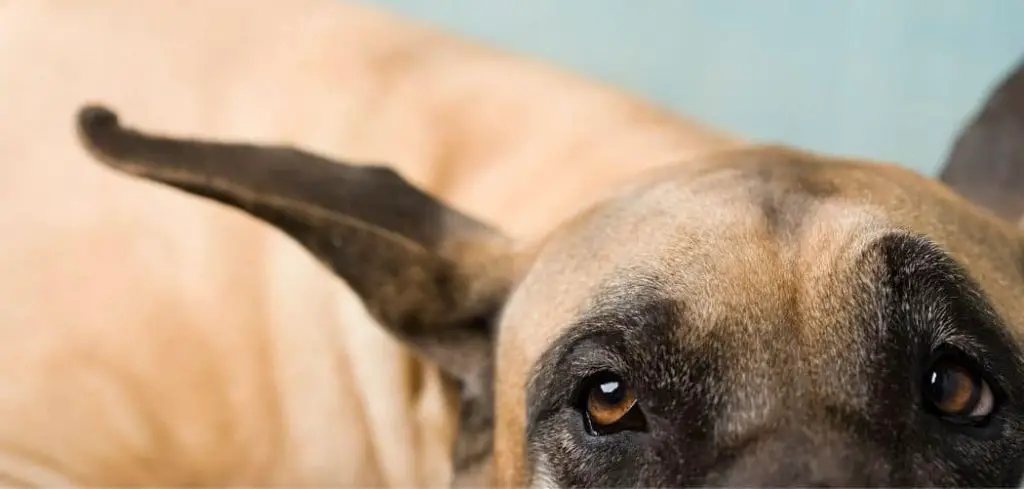Jaw chattering in an older dog can be unsettling to witness. This repetitive movement of the jaw may signal discomfort, neurological issues, dental pain, or other underlying medical conditions that affect your dog’s well-being.
Recognizing the symptom early and understanding the potential causes can help ensure your senior dog gets the care they need.
We outline the common causes of an old dog’s jaw chattering, what you can do at home, and when to seek veterinary help.
Old Dog Jaw Chattering — Why It Happens
Jaw chattering in older dogs can result from a combination of dental, neurological, and systemic health issues. Pain, nerve disorders, oral infections, metabolic imbalances, or anxiety can all contribute to this unusual behavior.
Some dogs may only show occasional jaw movements, while others might chatter their teeth frequently or continuously.

Old Dog Jaw Chattering: Common Causes
Dental Disease
Dental problems are a leading cause of jaw chattering in older dogs.
Pain from tooth decay, gum disease, or oral infections can lead dogs to move their jaws repetitively. Owners may notice bad breath, drooling, difficulty eating, or pawing at the mouth.
Ignoring dental issues can lead to worsening pain and systemic infections, making regular veterinary dental checks essential.
Read more: Old Dog Grinding Teeth (Here’s why)
Neurological Disorders
Neurological issues, including brain lesions, seizures, or nerve disorders, can trigger involuntary jaw movements.
Additional symptoms may include disorientation, head tilting, tremors, or loss of coordination. Early veterinary diagnosis is crucial, as some neurological conditions can progress rapidly and require medication or specialized care.
Pain or Discomfort
Jaw chattering can be a subtle sign of pain or discomfort elsewhere in the body, including the jaw, neck, or spine.
Dogs may also show reluctance to move, stiffness, or vocalizations when handled. Addressing pain through veterinary evaluation, appropriate medications, or supportive care can significantly improve quality of life for older dogs.
Hypoglycemia or Metabolic Imbalances
Low blood sugar or metabolic disturbances such as kidney or liver disease can cause jaw tremors.
Signs often include weakness, lethargy, vomiting, or changes in appetite. Detecting and correcting underlying metabolic issues is critical to prevent severe complications and support overall health.
Anxiety or Stress
Anxiety, fear, or environmental stressors can manifest as jaw chattering in some older dogs.
Other behaviors may include pacing, panting, trembling, or hiding. Providing a calm environment, consistent routines, and gentle reassurance can help alleviate stress-related jaw movements.
Exposure to Cold or Shivering
In some cases, jaw chattering may simply be a response to cold temperatures or mild shivering.
Dogs might tuck their tails, shiver, or hunch their bodies when uncomfortable. Ensuring warmth and comfort can reduce jaw movement in situations where temperature is the trigger.
Old Dog Jaw Chattering: What to Do
Observe your dog carefully to determine when and how often the jaw chattering occurs and note any accompanying signs such as drooling, disorientation, or changes in appetite.
Maintain a comfortable and stress-free environment, ensuring that your dog has a warm, safe space to rest and move freely.
Encourage gentle dental hygiene practices, like brushing teeth or providing dental chews, if your dog tolerates it, to reduce oral discomfort.
Provide mental and physical stimulation appropriate for your dog’s age and health, as boredom or anxiety can worsen jaw movements.
Document any changes and share them with your veterinarian, including frequency, duration, and triggers, to help guide diagnosis and treatment.
When to Call or Visit Your Vet
Seek immediate veterinary attention if jaw chattering is accompanied by seizures, severe disorientation, collapse, or other sudden neurological changes.
Persistent chattering with signs of pain, drooling, vomiting, or difficulty eating requires prompt evaluation.
Rapid behavioral changes, including aggression, confusion, or repeated jaw tremors, may indicate serious neurological or metabolic conditions that need professional intervention.
If dental issues are suspected, a veterinary oral examination can identify infections, tooth decay, or other problems that require treatment.
Read more: Old Dog Bad Teeth (Causes and Remedies)
Key Takeaway
Jaw chattering in older dogs can be caused by dental pain, neurological disorders, metabolic imbalances, anxiety, or cold exposure.
Observing your dog closely, maintaining a safe and comfortable environment, supporting dental health, and consulting your veterinarian when necessary are essential steps to ensure your senior dog’s well-being.
Early detection and intervention can help reduce discomfort, prevent complications, and improve your dog’s quality of life during their golden years.
